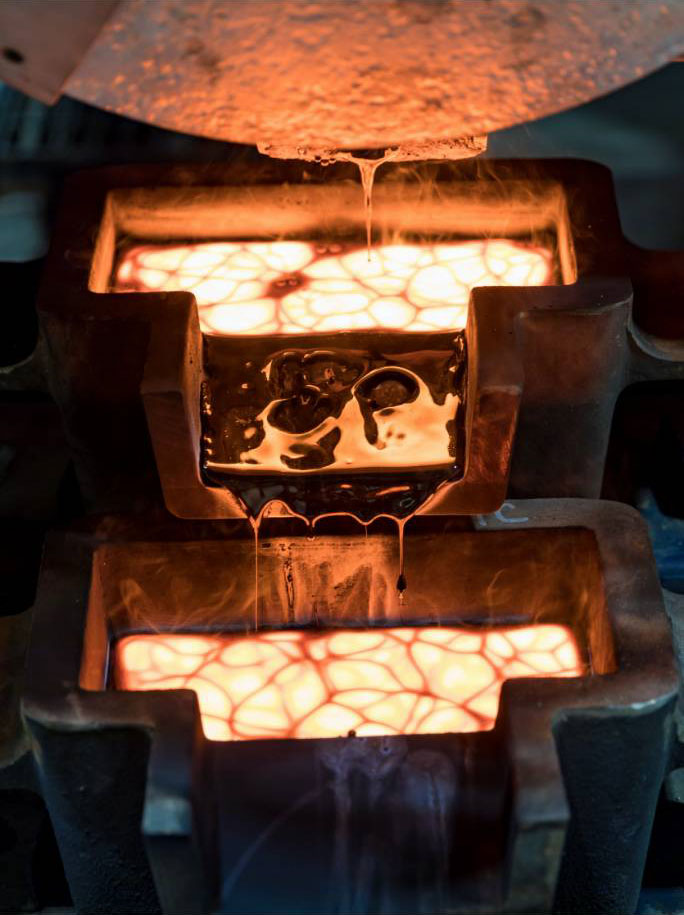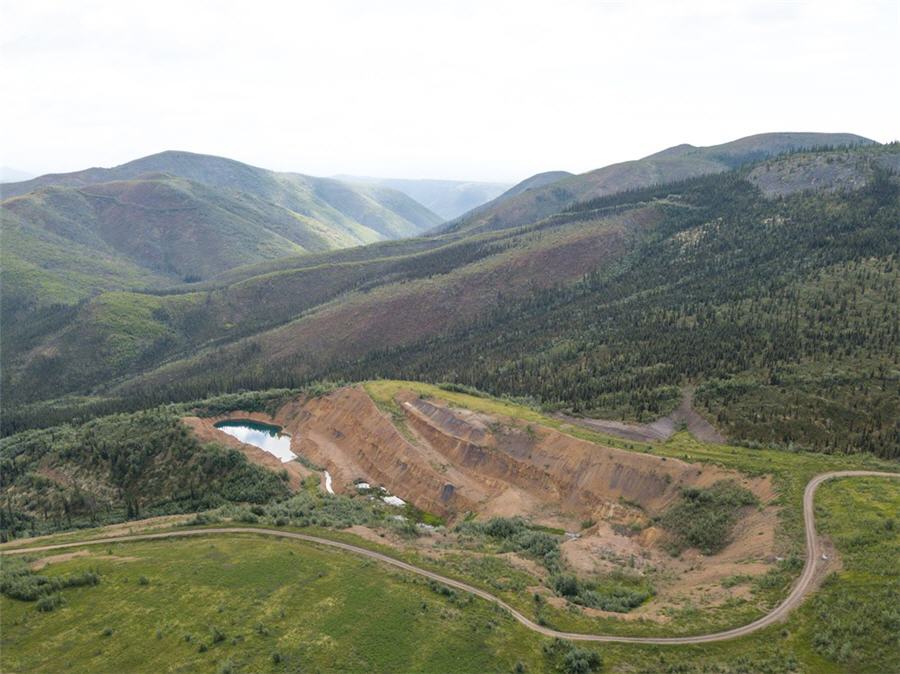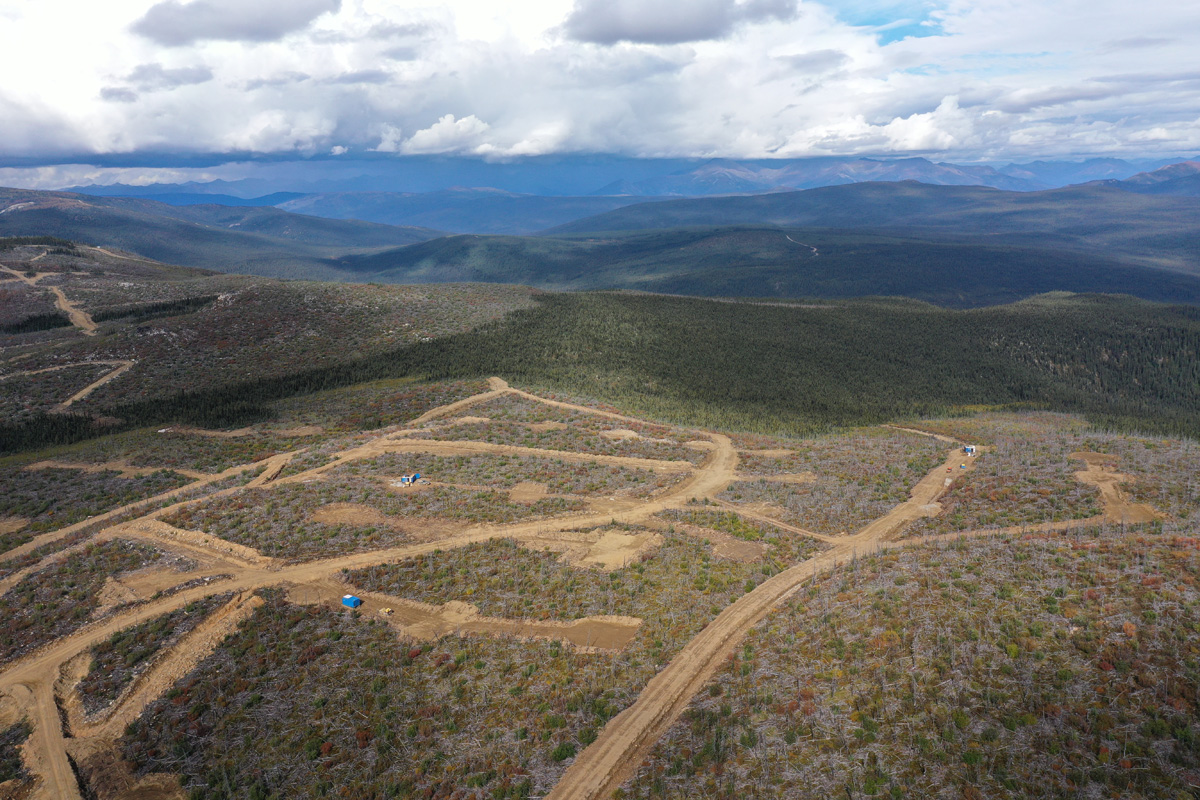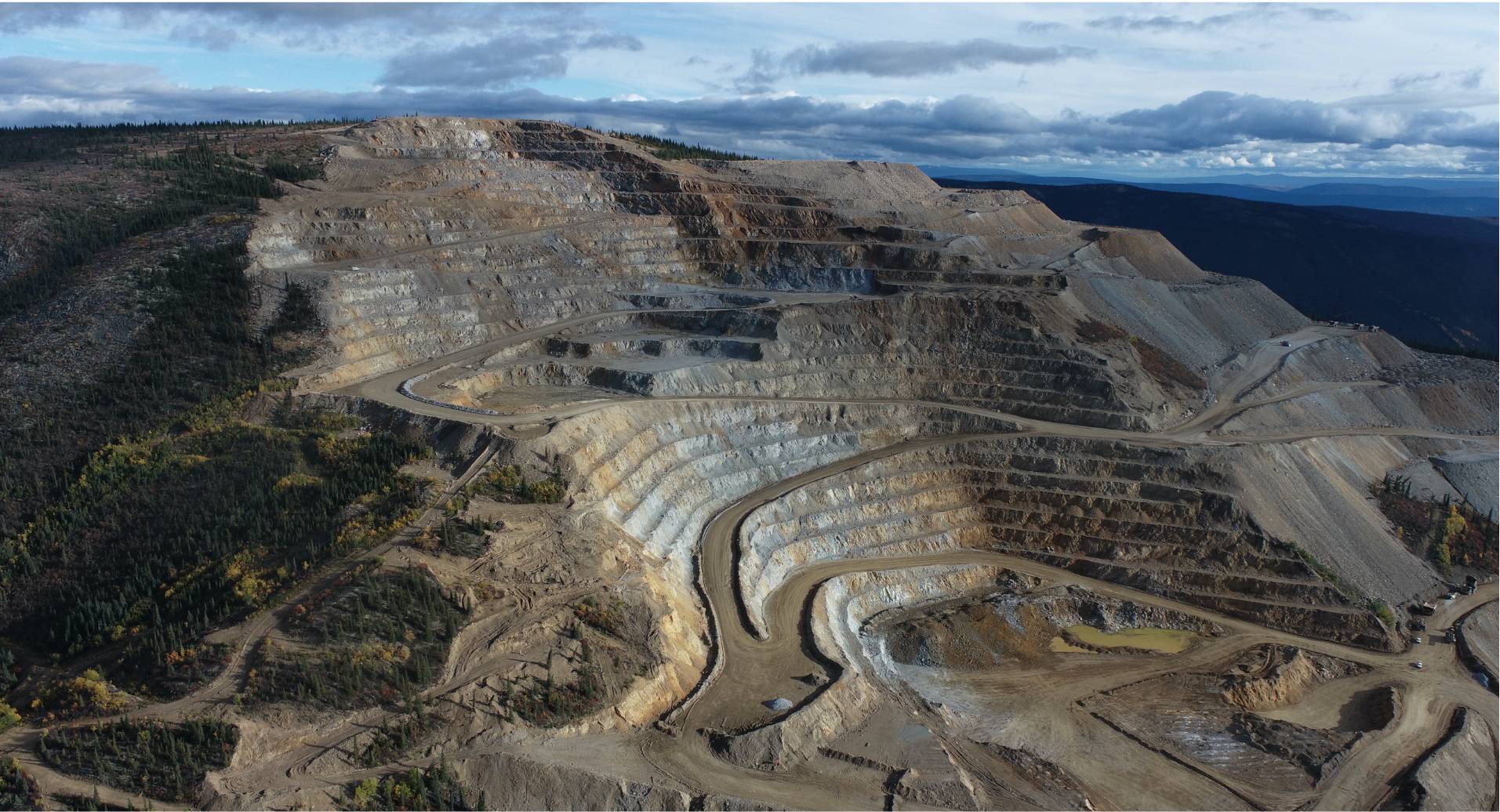By Peter Kennedy
Victoria Gold Corp. [VGCX-TSX] President and CEO John McConnell says he is “feeling pretty good,’’ about his company’s flagship Yukon gold mine.
 After some recent challenges, including the COVID-19 pandemic, and summer wildfires, Victoria’s flagship Eagle mine delivered a 17% year over year increase in gold production during the first nine months of 2023.
After some recent challenges, including the COVID-19 pandemic, and summer wildfires, Victoria’s flagship Eagle mine delivered a 17% year over year increase in gold production during the first nine months of 2023.
After a first gold pour in September, 2019, the Eagle mine is expected to produce approximately 180,000 of gold annually from an open pit heap leach operation that ranks as the Yukon’s largest private sector employer, with about 500 on the payroll.
McConnell describes Eagle as a long-life modern gold mine that could run for +20 years, and potentially longer if other deposits in the area can be developed. It is an asset that is highly levered to the price of gold, which has climbed by about US$200 an ounce since the start of the Israel-Hamas war.
“It was a struggle to run the operation during COVID, but now it’s running very well,’’ said McConnell during an interview with Resource World. He said the biggest challenge was maintaining the work force. This was because the pandemic required some employees to spend a lot of time in self-isolation. This year, wildfire activity in the area prompted an approximate two-week evacuation in early August. Even now, with roughly six mines being built in Canada recruitment is difficult, especially in the Yukon where miners work in an Arctic climate.
Shutting down operations at Eagle during the COVID pandemic wasn’t an option because Victoria Gold had to service debts of about $200 million.
In spite of recent setbacks, gold production in the first nine months of 2023 was 124,749, an increase of 17% compared to the same period in 2022.
When Victoria Gold reported its second quarter financial results in early August, 2023, all-in-sustaining costs (AISC) were running at US$1,466 an ounce. By comparison, spot gold was trading at US$1,995 an ounce on October 30, 2023.
 The Eagle gold mine is situated on the Dublin Gulch gold property in the central Yukon Territory, about 375 kilometres north of Whitehorse and approximately 85 kilometres from the town of Mayo.
The Eagle gold mine is situated on the Dublin Gulch gold property in the central Yukon Territory, about 375 kilometres north of Whitehorse and approximately 85 kilometres from the town of Mayo.
The mine site is eight hours by road to the port of Skagway, Alaska.
Covering 555 square kilometers, Dublin Gulch hosts the Eagle and Olive gold deposits, which as at December 31, 2022, contains proven and probable reserves of 2.6 million ounces of gold, with a grade of 0.65 g/t.
Already poised to benefit from the higher bullion price, Victoria Gold is eyeing future production from other deposits in the area, including the nearby Raven zone (at Dublin Gulch).
 The company can also look to additional potential production from the Brewery Creek gold project which it recently acquired along with other mineral assets from Sable Gold Mines Corp. [SGLD-TSX] for $13.5 million.
The company can also look to additional potential production from the Brewery Creek gold project which it recently acquired along with other mineral assets from Sable Gold Mines Corp. [SGLD-TSX] for $13.5 million.
Brewery Creek is a formerly-producing heap leach project, covering 181 square kilometres and located in the northwestern Yukon, about 55 kilometres east of Dawson City. It is situated 120 kilometres west of the Eagle gold mine.
According to a NI 43-101 technical report, Brewery Creek hosts a measured and indicated resource of 34.5 million tonnes of grade 1.03 g/t gold, containing 1.14 million ounces of gold. On top of that is an inferred resource of 36 million tonnes of grade 0.88 g/t gold, or 1.02 million ounces. Brewery Creek is also the subject of a preliminary economic assessment.
McConnell noted that Brewery Creek could be a stand-alone heap leach operation, producing 50,000 to 60,000 ounces of gold annually for roughly 10 years.
Victoria Gold currently owns roughly 12% of Banyan Gold. Victoria is happy to let Banyan develop the AurMac project on its own, McConnell said,
 Meanwhile, the Raven deposit has been the primary focus of exploration at Dublin Gulch as Victoria aims to add more gold to its existing inventory.
Meanwhile, the Raven deposit has been the primary focus of exploration at Dublin Gulch as Victoria aims to add more gold to its existing inventory.
Raven is one of several priority on/near-surface gold targets that could help the company achieve that goal. The current Raven Resource estimate includes 1.1 million ounces at 1.7 g/t gold.
Raven is located within 15 kilometres of the Eagle mine. While exploration is still in the early stages, it could emerge as a separate mining operation.
In a press release on October 25, 2023, the company announced new results from a 13,200-metre diamond drilling program (39 holes at Raven where mineralization has been confirmed over a strike length of 1.7 kilometres). The program consisted of systematic fence drilling to the east of the current deposit bounds coupled with exploratory drill holes around the promising high-grade mineralization identified last season in drill hole NG22-155C which returned 20.24 g/t gold over 14.5 metres.
Drilling has also provided further confirmation of the Raven mineralization and resource model, with long intervals of gold mineralization (such as 240.2 metres of 0.96 g/t gold) hosted within granodiorite lithologies punctuated by intervals of high-grade massive sulphide veins (such as 1.0 metre of 49.10 g/t gold and 0.5 metres of 24.20 g/t gold).
“Work on an updated Raven Resource is now underway and we look forward to seeing two full seasons of drilling added to the maiden resource estimate,’’ McConnell said. An updated Raven resource estimate will likely be announced following a compilation and analysis of the 2023 drill results.
 Meanwhile, in spite of the focus on exploration, McConnell says 95% of his time is spent running the mine. A 68-year-old mining engineer from the British Columbia Kootenays, he has had a long association with the Eagle mine, an asset that his company acquired at the height of the global financial crisis in 2009.
Meanwhile, in spite of the focus on exploration, McConnell says 95% of his time is spent running the mine. A 68-year-old mining engineer from the British Columbia Kootenays, he has had a long association with the Eagle mine, an asset that his company acquired at the height of the global financial crisis in 2009.
“The resource was of a size that a junior could develop and operate,” McConnell said.
Victoria raised about $60 million by selling its assets. It used that money to fund exploration and development of the Eagle mine. McConnell, who now lives in Vancouver, has spent much of his career working “north of the 60th parallel.’’ Previous roles included spells with De Beers Canada, when it was developing the Snap Lake diamond mine in the Northwest Territories and Breakwater Resources, a company that owned the Nanisivik zinc-lead mine on Baffin Island, Nunavut.
“I don’t like minus 50 (Celsius) anymore,’’ McConnell said. But he has no plans to retire. Instead, he remains focused on overseeing an operating mine that boasts a diverse set of employees. He is proud of the fact that 20% are women, a figure that he has described as a very high number for a mining operation.
Roughly 40% of the mine work force are Yukoners, while 20% are members of First Nations.
The Company’s overall goal is to increase production at Eagle to about 200,000 ounces per year, a target it expects to reach without any significant capital spend. With potential production from Raven and Brewery Creek in the future, Victoria could raise production to over 300,000 ounces annually. “It will be a few years before we work through the technical studies looking at that,’’ McConnell said.
On November 16, 2023, Victoria Gold shares were trading at $6.15 in a 52-week range of $11.16 and $5.36, leaving the company with a market cap of $409 million based on 66.5 million shares outstanding.
Continue Reading
>>> Read full article>>>
Copyright for syndicated content belongs to the linked Source : ResourceWorld – https://resourceworld.com/interview-with-victoria-gold-ceo-mcconnell-tells-how-it-is-mining-in-the-central-yukon-territory/?utm_source=rss&utm_medium=rss&utm_campaign=interview-with-victoria-gold-ceo-mcconnell-tells-how-it-is-mining-in-the-central-yukon-territory










